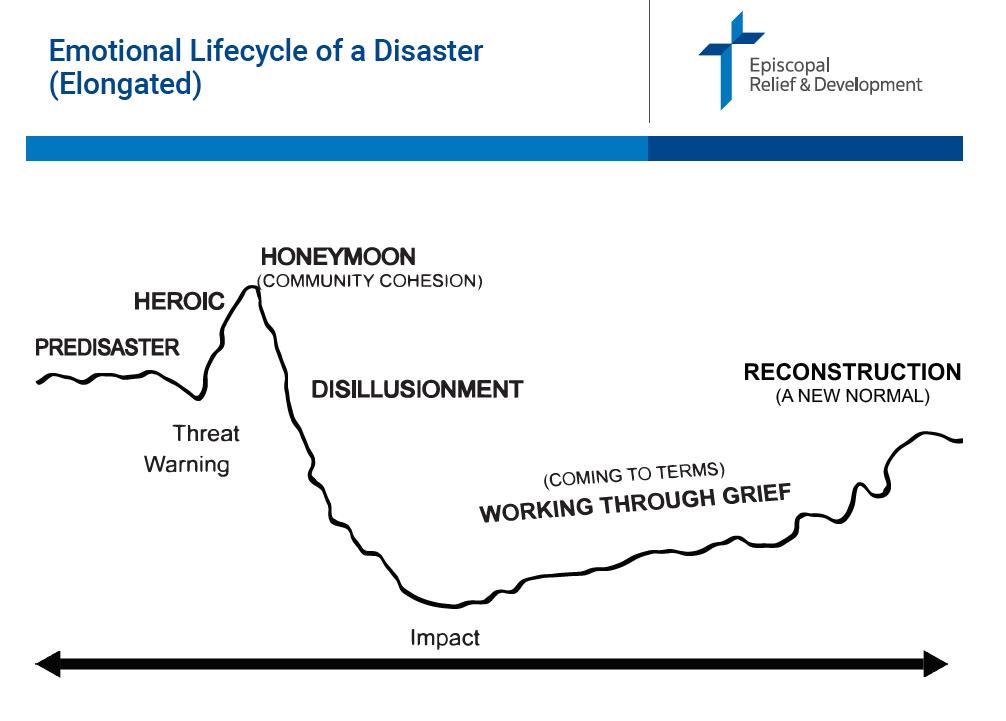Pentecost 16A/Proper 20
Exodus 16:2-15
Psalm 105:1-6, 37-45
Philippians 1:21-13
Matthew 20:1-16
Gracious God, take our minds and think through them; take our hands and work through them; take our hearts and set them on fire. Amen.
I had every intention of preaching on the gospel this week, it’s an amazing parable to explore. But on Wednesday I attended a webinar about planning for Advent & Christmastide, and on Thursday the Re-Gathering Team met to plan for transitioning our in-person worship from the Memorial Garden into the church at the end of next month – and suddenly the passage from Exodus hit home in a new way.
In our reading from Exodus we encounter the Israelites at the start of their trek into the wilderness – that time in between their settled lives in Egypt and settling down in the Promised Land. In short, the Israelites were experiencing liminality and all the joy and frustrations that brings.
Today we hear mostly about the frustration. A month in, and the only thing running lower than the initial rush of adrenaline from their flight out of Egypt, is the supplies they brought with them. As reality sets in, so does fear.
A fear rooted in their proclivity to look back with rose-tinted glasses and their initial inability to imagine a future beyond the wilderness.
A fear focused on the idea of not enough.
God, however, offered the Israelites a different option – one of trust in enough.
Every day at dusk their camp would be covered in quail, and every morning they found a flaky substance, identified as manna, on the ground, which could be used to make the day’s bread.
In the verses immediately following where our reading stops today, we hear further instructions about this food from God:
This is what the Lord has commanded: “Gather as much of it as each of you needs, an omer to a person according to the number of persons, all providing for those in their own tents.” 17The Israelites did so, some gathering more, some less. 18But when they measured it with an omer, those who gathered much had nothing over, and those who gathered little had no shortage; they gathered as much as each of them needed. 19And Moses said to them, ‘Let no one leave any of it over until morning.’ 20But they did not listen to Moses; some left part of it until morning, and it bred worms and became foul. And Moses was angry with them.21 Morning by morning they gathered it, as much as each needed.[1]
It was a learning curve – the people, still initially operating from a place of fear, tried at first to save and stockpile, even though they all gathered as much as they needed.
But over time, over forty years, they learned and re-learned enough, and to trust God.
+++
We are six+ months into our own wilderness journey. We may be “done” with the pandemic, but it’s not yet “done” with us. We can only hope this season of coronatide doesn’t last forty years!
Like the Israelites, we can’t help but look back to the way things used to be – longing for things to just be “normal” again. But just as they couldn’t return, and instead had to forge ahead into something new, so it is for us.
In the spring we turned on a dime and changed all at once. It wasn’t perfect by any means, there was a learning curve, but we pulled together to stay church, stay connected, and take care of each other.
But the longer we’re in this liminal space, the more prone we are to focus on the frustrations. This is normal. Not only do we have the biblical example found in today’s reading, but it also fits with how we understand our response to trauma and disaster.
A tool that I keep coming back to that illuminates this is the Emotional Lifecyle of a Disaster from Episcopal Relief & Development. 
As you can see, after a period of coming together, the natural course of things is to descend into a period of disillusionment, followed by a slow climb of working through grief and coming to terms with the way things have changed.
I am guessing that many of us are to the point of working through our grief around this pandemic, as well the political, economic, and racial strife facing our nation – hence the frustration as we come to terms with the fact that things aren’t just going “back to normal.”
I experienced this viscerally when I attended that webinar about planning for Advent & Christmas. I already “knew” that things would be different this year, but that really drove it home.
We won’t be able to have our Advent wreath making party on the first Sunday of Advent. We won’t have a standing room only pageant service on Christmas Eve. We won’t get to hear our choir’s amazing choral prelude before the candlelight service.
It hurts my heart.
And yet, I know that the path forward is to trust in God who will give us enough to rise to the opportunities ahead.
I know this because it’s written in our footsteps over these last 6+ months, because I heard it as our Ministry Chairs laid out our calendar in all its uncertainty for the next year, and because I’m seeing it in the work of the Re-Gathering Team as we plan to transition our in-person service inside at the end of next month.
Hopefully it is indeed not forty years, but we’re in this for the long haul and we’re going to come out on the other side different. And that’s good, because it means we’ve done the work of change and growth that times like this necessitate.
God has given us holy imaginations – and each other. It will all be enough to face the days ahead, if we trust. Amen.
[1] New Revised Standard Version, Exodus 16:16:21a.

